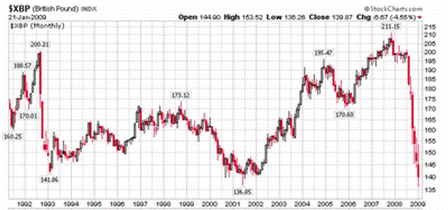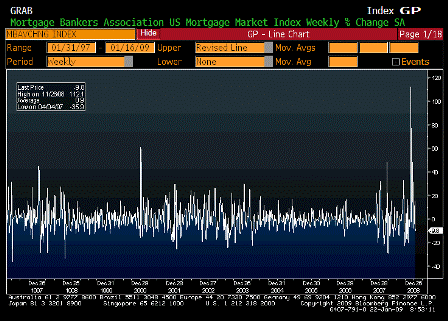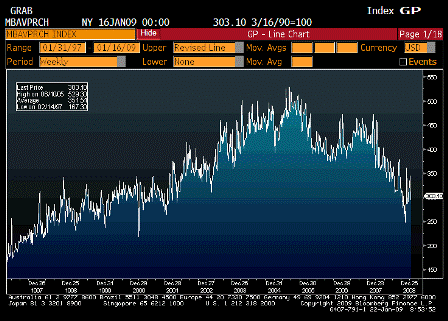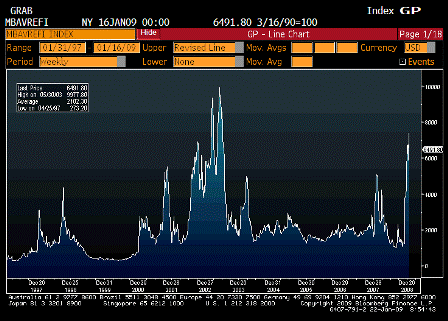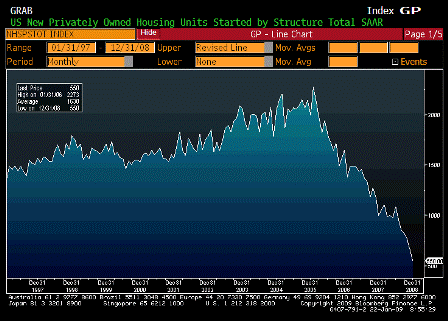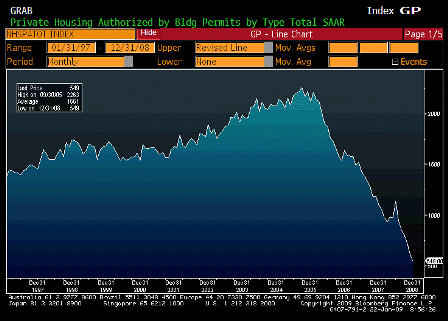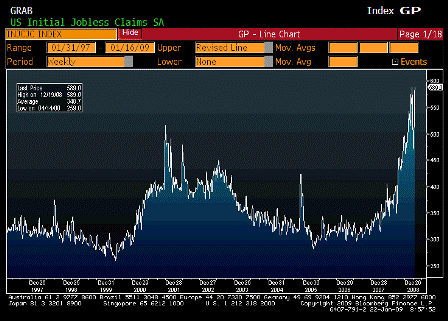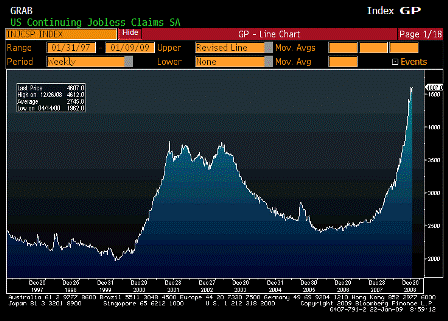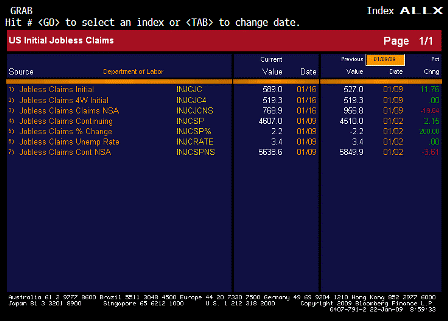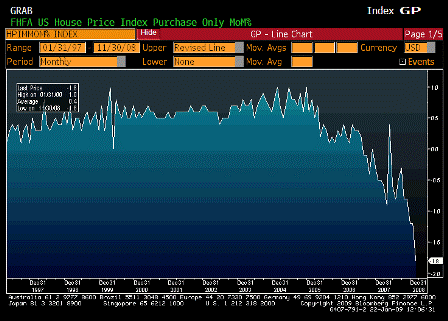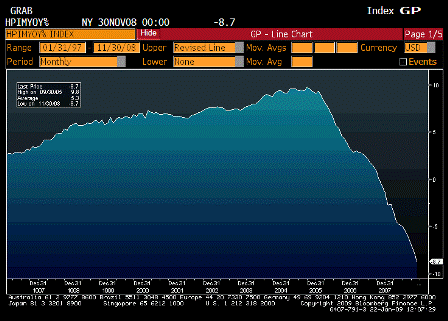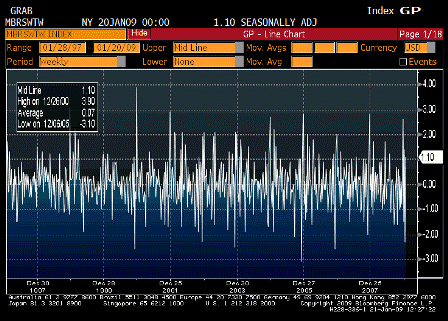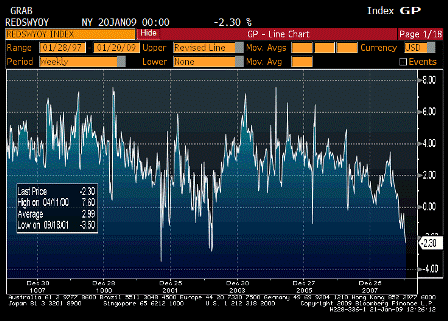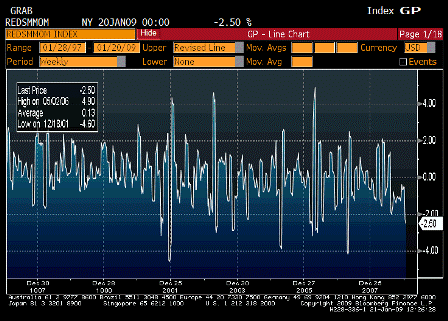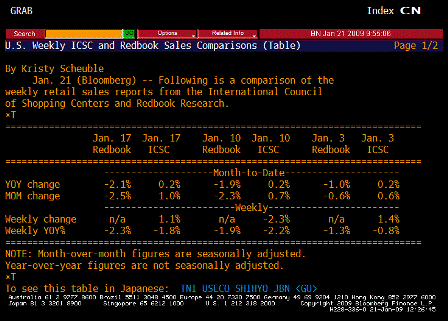[Skip to the end]
by Peter Schiff
Jan 23 (Wall Street Journal) — Barack Obama has spoken often of sacrifice. And as recently as a week ago, he said that to stave off the deepening recession Americans should be prepared to face “trillion dollar deficits for years to come.”
But apart from a stirring call for volunteerism in his inaugural address, the only specific sacrifices the president has outlined thus far include lower taxes, millions of federally funded jobs, expanded corporate bailouts, and direct stimulus checks to consumers. Could this be described as sacrificial?
No. Good point! Why should utilizing idle resources be sacrificial?
It’s only during times of scarcity does ‘sacrifice’ come into play.
What he might have said was that the nations funding the majority of America’s public debt — most notably the Chinese, Japanese and the Saudis — need to be prepared to sacrifice.
They already have been and want to continue net exporting to the US.
That is true sacrifice, and they are begging to be allowed to continue doing it.
They have to fund America’s annual trillion-dollar deficits for the foreseeable future.
No, we have funded their savings.
These creditor nations, who already own trillions of dollars of U.S. government debt, are the only entities capable of underwriting the spending that Mr. Obama envisions and that U.S. citizens demand.
No, they push to get to the front of the line to accumulate USD financial assets as part of their desire to net export (sacrifice) to the US.
These nations, in other words, must never use the money to buy other assets or fund domestic spending initiatives for their own people.
Yes, it’s better for us if they don’t. But they can at any time. And lucky for us they don’t want to.
When the old Treasury bills mature, they can do nothing with the money except buy new ones. To do otherwise would implode the market for U.S. Treasurys (sending U.S. interest rates much higher)
Maybe.
and start a run on the dollar. (If foreign central banks become net sellers of Treasurys, the demand for dollars needed to buy them would plummet.)
Only if they sell USD for other currencies, or spend those USD here.
And if the dollar goes down, so what? While it’s not my first choice to enact policy that causes the dollar to go down for other reasons, it does not alter the real wealth of the US.
Real wealth= everything produced domestically plus everything imported minus everything exported.
Exports are always a cost, imports a benefit.
In sum, our creditors must give up all hope of accessing the principal, and may be compensated only by the paltry 2%-3% yield our bonds currently deliver.
And if they never spend the USD interest earned is of no real consequence either.
As absurd as this may appear on the surface, it seems inconceivable to President Obama, or any respected economist for that matter, that our creditors may decline to sign on.
You would think they would have realized net exports hurt them long ago. But as of today they are still clawing and biting to increase net exports.
And, worse yet, our fearless leaders are trying to reverse that and balance of trade account.
Their confidence is derived from the fact that the arrangement has gone on for some time, and that our creditors would be unwilling to face the economic turbulence that would result from an interruption of the status quo.
No, they do it to support their export industries that have disproportionate political clout, supported by international mainstream economics that praises exports and condemns imports.
But just because the game has lasted thus far does not mean that they will continue playing it indefinitely.
Agreed! But we should strive to continue it, not strive to end it.
Thanks to projected huge deficits, the U.S. government is severely raising the stakes. At the same time, the global economic contraction will make larger Treasury purchases by foreign central banks both economically and politically more difficult.
No, it makes it more urgent, as they have no instinct to increase their domestic demand, but instead focus on supporting their exports.
The root problem is not that America may have difficulty borrowing enough from abroad to maintain our GDP, but that our economy was too large in the first place. America’s GDP is composed of more than 70% consumer spending.
Pretty normal. The entire point of any economy is consumption. The rest is investment which represents a down payment on future consumption.
For many years, much of that spending has been a function of voracious consumer borrowing through home equity extractions (averaging more than $850 billion annually in 2005 and 2006, according to the Federal Reserve) and rapid expansion of credit card and other consumer debt. Now that credit is scarce, it is inevitable that GDP will fall.
Yes, but because government doesn’t understand its role in sustaining domestic demand.
Neither the left nor the right of the American political spectrum has shown any willingness to tolerate such a contraction. Recently, for example, Nobel Prize-winning economist Paul Krugman estimated that a 6.8% contraction in GDP will result in $2.1 trillion in “lost output,” which the government should redeem through fiscal stimulation. In his view, the $775 billion announced in Mr. Obama’s plan is two-thirds too small.
Agreed!
Although Mr. Krugman may not get all that he wishes, it is clear that Mr. Obama’s opening bid will likely move north considerably before any legislation is passed. It is also clear from the political chatter that the policies most favored will be those that encourage rapid consumer spending, not lasting or sustainable economic change. So when the effects of this stimulus dissipate, the same unbalanced economy will remain — only now with a far higher debt load.
There is no reason for fiscal balance to ‘dissipate’ but instead can be continually altered to support aggregate demand/output/employment.
Currently, U.S. citizens comprise less than 5% of world population, but account for more than 25% of global GDP. Given our debts and weakening economy, this disproportionate advantage should narrow. Yet the U.S. is asking much poorer foreign nations to maintain the status quo, and incredibly, they are complying. At least for now.
We aren’t asking them to export to us, they are demanding the right to export to us.
You can’t blame the Obama administration for choosing to go down this path. If these other nations are giving, it becomes very easy to take.
In fact, foolish not to.
However, given his supposedly post-ideological pragmatic gifts, one would hope that Mr. Obama can see that, just like all other bubbles in world history, the U.S. debt bubble will end badly. Taking on more debt to maintain spending is neither sacrificial nor beneficial.
He misses the point. There is no financial risk to government ‘debt’, only the risk of inflation.
Government continuously has the option to sustain domestic demand and no reason not to do so apart from deficit myths and a lack of understanding of our monetary system.
Mr. Schiff is president of Euro Pacific Capital and author of “The Little Book of Bull Moves in Bear Markets” (Wiley, 2008).
[top]

